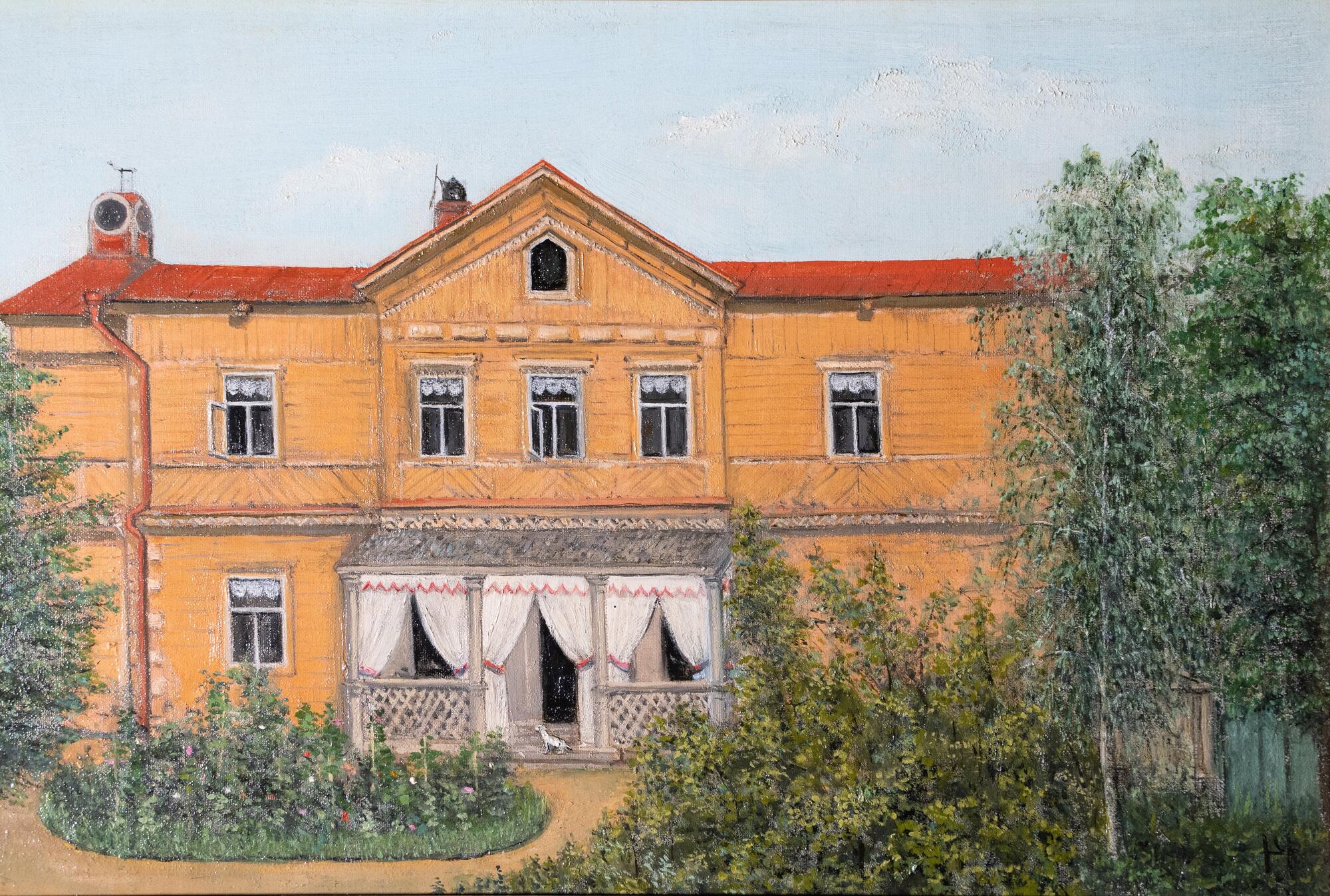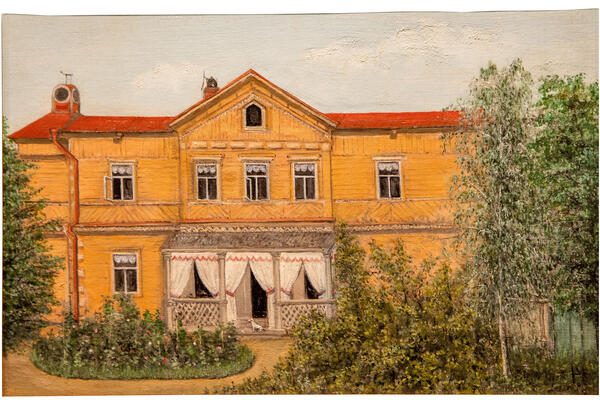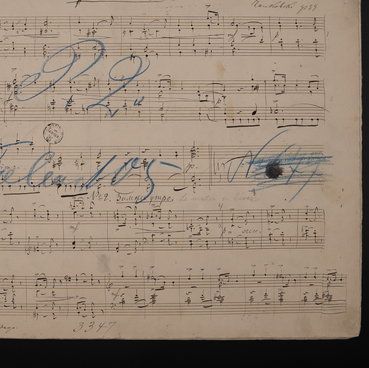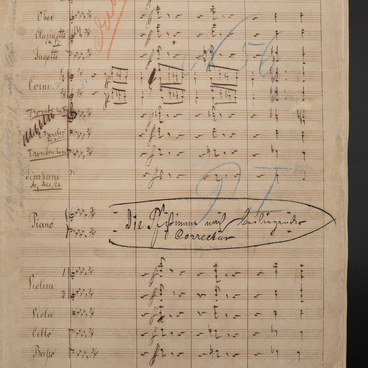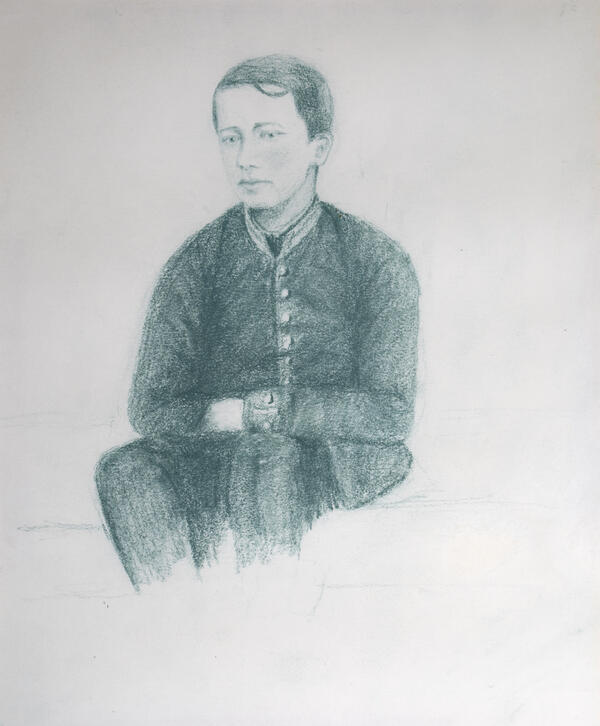The presented painting was created by the composer’s elder brother, Nikolay Ilyich Tchaikovsky. He graduated from the Mining Institute, but devoted most of his life to the railway business, which was developing rapidly in Russia. From the 1890s, Nikolay Tchaikovsky worked in Moscow as the manager of the Yakovlevs’ printing houses, took part in the posthumous publication of his brother’s articles on music criticism and a brief biographical sketch written by one of the composer’s closest friends, the architect Ivan Klimenko.
In one of his letters, Pyotr Tchaikovsky described his dream home, outlining his wishes for his future abode,Pyotr Tchaikovsky’s house in the town of Klin
I do not need land at all, that is, I only want to have a house with a pretty garden, and not a young one. A river is certainly desirable. If there is a forest nearby, even better. <…> It is necessary that this dacha or farmstead be a completely separate estate, and not adjacent to other dachas, and, most importantly, it is necessary that it should be close to the station, so that Moscow is always at my fingertips. <…> The most important and essential condition is that the area be nice and beautiful. If the house stands somewhere at the bottom of the hill, so there is no view from the windows, then it does not fit my requirements.
In 1885, a house in the Klinsky Uyezd of the Moscow Governorate became Pyotr Ilyich Tchaikovsky’s main residence. The composer’s servant, Alexey Sofronov, was a native of these places and knew them well. Tchaikovsky always followed his advice, when choosing his suburban residences, including the cottages in Maydanovo, a manor in Frolovskoye and a house in Klin. All the composer’s latest masterpieces were created in these places, in particular “The Sleeping Beauty”, “The Nutcracker”, “Iolanta”, the Symphonies No. 5 and No. 6.
However, the main thing that distinguished Tchaikovsky’s life in Klin and its surroundings was the feeling of being at home, which he almost never previously had. The modest lifestyle of the composer in all his dwellings in Moscow and the suburbs, was provided by servants. Tchaikovsky had three assistants. Each of them was an active participant in his daily life, engaged in everyday chores, and knew the master’s character, his tastes and preferences.
The museum in Klin was established by the composer’s younger brother Modest Ilyich Tchaikovsky. He carried out his plan with the help of Vladimir Lvovich Davydov (the nephew and heir of Tchaikovsky’s copyright) and the servant of the composer Alexey Ivanovich Sofronov, who inherited his property.